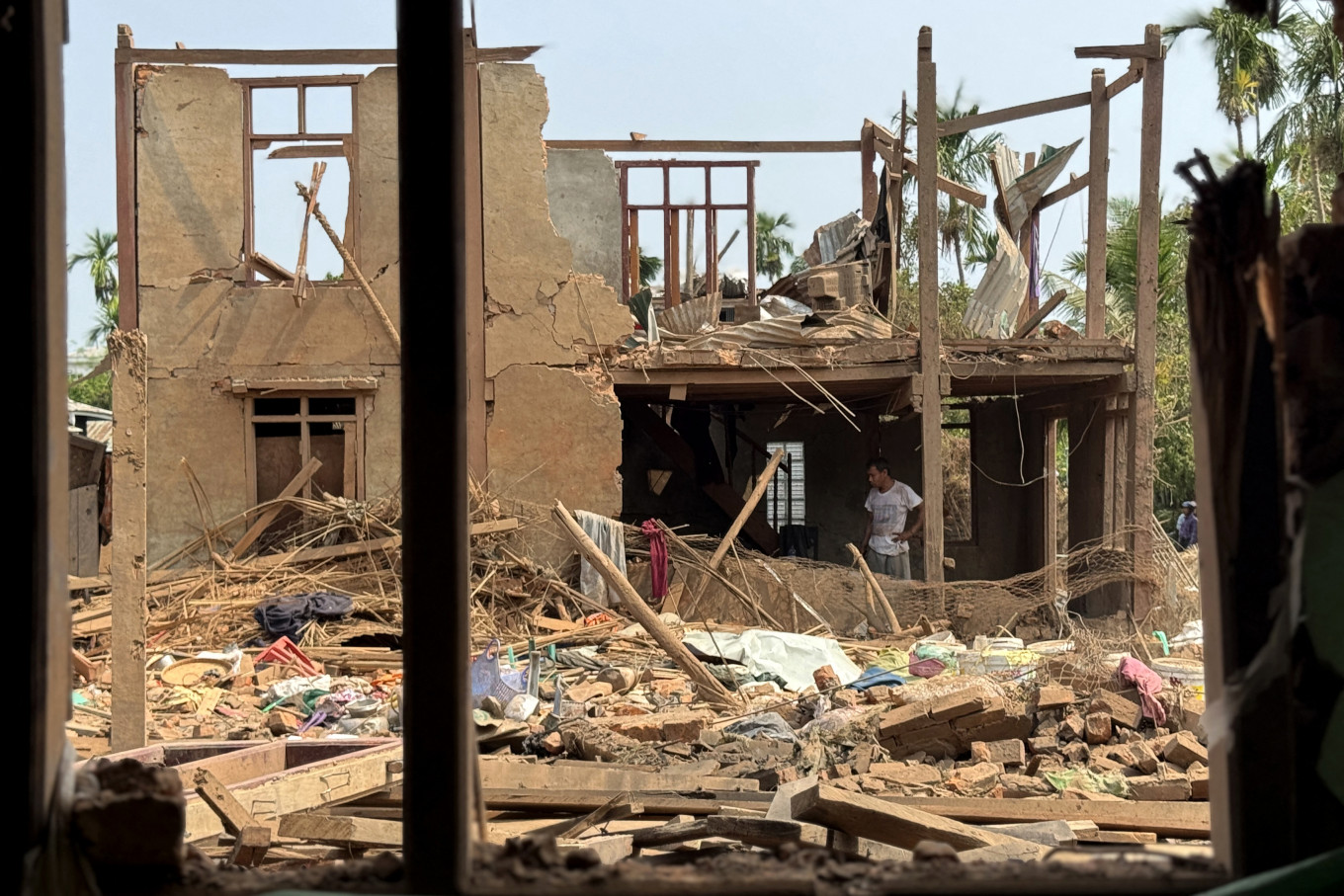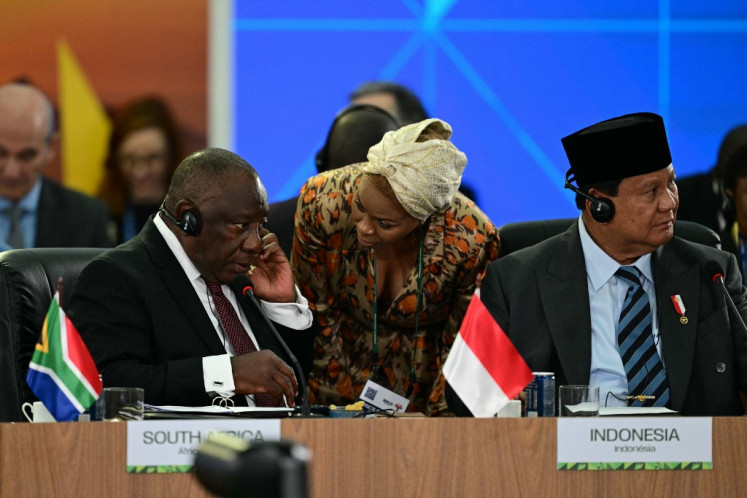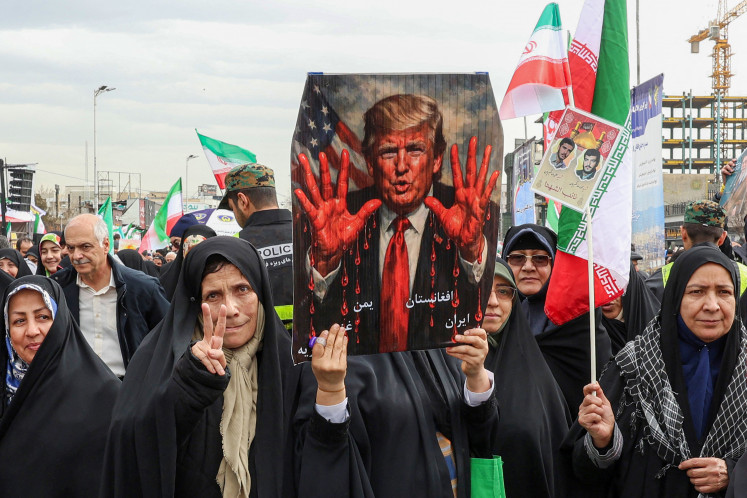Popular Reads
Top Results
Can't find what you're looking for?
View all search resultsPopular Reads
Top Results
Can't find what you're looking for?
View all search resultsWhy health workers need urgent protection and funding
Global funding cuts and escalating attacks on health care, in direct violation of international laws, are colliding at the worst possible time for the world’s regions most vulnerable to disasters and conflicts.
Change text size
Gift Premium Articles
to Anyone
F
rom flood-hit villages in Nepal to conflict-affected areas in Myanmar, midwives, doctors and community responders save lives. These humanitarians are the first to arrive and the last to leave when crisis strikes. They work in conflict zones, climate disaster areas and displacement camps, often with scarce resources under the constant threat of violence.
In Myanmar alone, millions of women and girls remain displaced, both within the country and in neighboring states. This year marks eight years since the tragic mass exodus of the Rohingya from Myanmar to Cox’s Bazar in Bangladesh, now the world’s largest refugee settlement, where humanitarians continue working tirelessly to protect their rights and dignity.
Six months since the devastating global funding cuts to the United Nations Population Fund (UNFPA), we are seeing the far-reaching impacts on the lives of those we serve: maternal health clinics have closed, mobile health teams have been suspended and delivery of essential reproductive health supplies is delayed, leaving millions without critical services that, for some, mean the difference between life and death.
At the same time, attacks on health care are rising. Last year was the deadliest on record for aid workers; the vast majority of those killed were national staff. Globally, more than 1,600 attacks on healthcare workers were recorded, including in Iran, Myanmar and Pakistan, killing over 900 patients and health workers and injuring hundreds more.
This is not just a human tragedy. It is a violation of international humanitarian law. Attacks on health facilities, workers and patients are prohibited, yet impunity persists. Leaders must act: Protect health care as a core humanitarian principle, integrate it in national legislation and rules of engagement and hold perpetrators accountable.
When healthcare services are targeted or disrupted, women and girls suffer the most. Pregnant women are left without access to lifesaving obstetric care, turning childbirth into a life-threatening emergency. Survivors of gender-based violence lose access to emergency contraception, post-rape treatment, psychosocial support and referral services. In many conflicts, sexual violence is weaponized, compounding the trauma and risks women and girls face. Women’s health and protection facilities have become battlegrounds, with deadly consequences.
Each year, millions are displaced in Asia and the Pacific by floods, earthquakes and conflicts. Climate change is also intensifying both the frequency and severity of emergencies. Entire communities are uprooted and homes destroyed, while women and girls bear the greatest brunt. We are seeing a silent crisis of mental health, trauma and a loss of dignity.
In a flood-hit rural province of Laos, I met Soudaly, a midwife who had waded through waist-deep water to reach a temporary shelter for displaced families. She carried a backpack of clean delivery kits, knowing that at least three pregnant women were due within days. “If we wait for the water to recede,” she told me, “it will be too late for some mothers.” Her determination reflects the quiet heroism of thousands of local responders who act first and fastest when disaster strikes.
UNFPA is proud to stand with local health workers, volunteers and community responders.
In 2024, we supported 46 emergencies in 16 countries in Asia and the Pacific, reaching millions of women and girls. UNFPA partners with national and women-led organizations to strengthen locally led, inclusive responses and shift the power to those who understand its realities best.
But localization without resourcing is an empty promise. Predictable, multiyear funding is essential to build resilient health systems, support midwives and other frontline workers, preset lifesaving supplies and protect health workers from harm. It is the smartest investment in stability, dignity and the prevention of future crises.
The scale of today’s emergencies demands a new paradigm of humanitarian action that protects health workers and facilities, upholds international humanitarian law and invests in local solutions.
Attacks on health care must stop. Governments and donors must provide the resources needed to meet rising needs. We must speak up, and loudly, when the very fabric of humanitarian principles – innocent civilians and frontline workers – is under attack.
This World Humanitarian Day on Aug. 19, let us stand with the midwife wading through floodwaters to reach expectant mothers, the health worker delivering care amid conflict and the youth volunteer delivering supplies to remote communities. Let us match the courage of Soudaly and all those on the front lines of humanitarian crises with the political will, protection and sustained funding they need to save lives.
---
The writer is regional director for Asia and the Pacific at the United Nations Population Fund (UNFPA).











